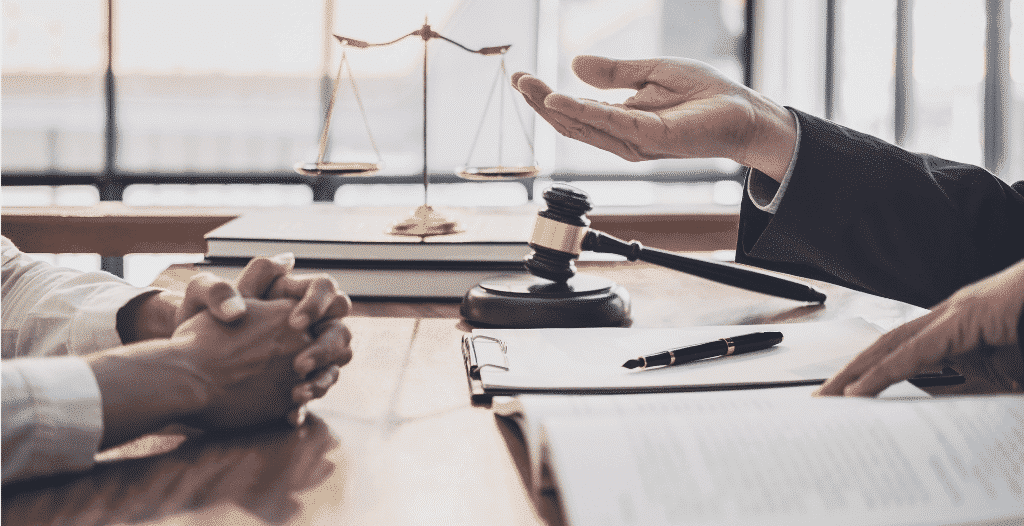Attorney-Client Privilege: Why Your Loved One’s Attorney Can’t Tell You Everything About the Case

Parents, spouses, friends, and family members are naturally concerned and distressed by the news of a loved one being arrested for a crime. In a desire to do everything possible to help, family and friends may inquire about details regarding the case. However, attorney-client privilege prevents your loved one’s criminal defense attorney from divulging details about the case.
What is Attorney-Client Privilege?
Police make more than 10 million arrests each year, and in cases where a defendant is represented by a lawyer (public defender or private lawyer), communications between the lawyer and client are bound by attorney-client privilege.
Attorney-client privilege protects communication between lawyers and clients. The purpose of this rule is to encourage clients to share any and all information related to the case without fear of legal repercussions or other consequences. This ensures that lawyers can represent clients effectively because they have all of the facts.
Lawyers are bound by attorney-client privilege to keep client communication private and may not repeat anything the client shares with anyone outside of the legal team without explicit permission from the client.
Attorney-client privilege typically stays in effect indefinitely, even after the client’s death. In other words, lawyers can never divulge a client’s secrets without the client’s consent. This privilege prevents lawyers from having to testify about statements from the client.
The Crime-Fraud Exception
There are rare circumstances when an attorney may be required to break privilege without the client’s consent. The crime-fraud exception is one such case.
Under this exception, attorneys are required to disclose information if the client states that he or she is planning to commit or is committing fraud or a crime. But even in this case, the attorney is not required to disclose whether the client has previously committed a crime.
Why Can’t My Loved One’s Attorney Tell Me Anything?
In addition to attorney-client privilege, lawyers also owe a duty of confidentiality to their clients. This duty of confidentiality further prevents your loved one’s lawyer from discussing details of the case with you and other members of the family or friends.
Duty of confidentiality prohibits lawyers from even informally discussing any information related to the client’s case. They have a responsibility to keep all information associated with the client’s representation private, which also includes information that did not come from the client.
Lawyers have a responsibility not to break the duty of confidentiality, so they must take care when speaking with friends or loved ones of clients. Risking breaching this duty could be damaging to the case and the lawyer’s professional reputation. Lawyers can even lose their licenses to practice if they violate this duty.
Your loved one’s arrest is undoubtedly distressing and concerning, but the lawyer’s refusal to share information is nothing personal. Lawyers are simply bound to confidentiality and do not want to risk damaging your loved one’s case by sharing information with anyone other than the client.
Privilege, although frustrating, is there for your loved one’s benefit.
Why It’s Important to Respect Attorney-Client Privilege
If your child, family member, or friend has been arrested, it’s natural for him or her to want you to be present when consulting with lawyers.
However, there is a very real possibility that any conversations where you (or anyone who is not the client) are present will not be considered confidential. This means that a D.A. may be able to ask you or anyone else who was present during the conversation what was said during the conversation.
A lawyer may be able to convince the judge that the meeting was bound by privilege because it was necessary to include you (or other people) in the conversation, but there is no guarantee that this argument will work.
Unless you can shed light on the situation or help the lawyer develop a strategy, it may be better to keep meetings and consultations strictly between your loved one and his/her lawyer. This can help ensure that conversations and meetings are protected by privilege.
Losing the Right to Confidentiality
It’s also possible to lose the right to confidentiality when defendants share lawyer-client communication with others. If your loved one, for example, discusses statements with someone else, attorney-client privilege may be waived, i.e. they are not protected by confidentiality. Defendants cannot expect details to be considered private if they are sharing them with others.
To help protect your loved one’s case, avoid asking questions about the case or inquiring about details. Otherwise, you may be putting yourself or your loved one in a difficult situation that may be damaging to the case.
A loved one’s arrest can be emotionally distressing and stressful. While it’s important to be supportive and helpful whenever possible, it’s important to remember that lawyers are bound by attorney-client privilege and may not reveal any information about the case. Privilege protects the information your loved one shares with his or her lawyer and allows for the most effective representation.

